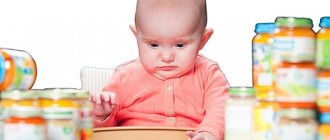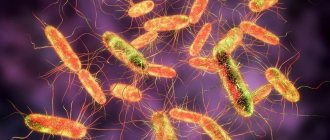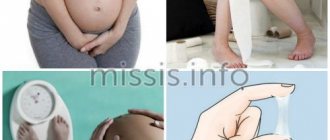Why are children at risk and more susceptible to dehydration?
Children, along with older people, are at risk and are more susceptible to getting dehydrated , due to a combination of several factors:
First , because they are a group of people who, due to their age, are more likely to suffer from infections that can cause fever and gastrointestinal symptoms such as vomiting or diarrhea, which lead to loss of body fluids. However, dehydration can occur not only with gastroenteritis, but with other infections, such as respiratory (colds, sinusitis, pneumonia, bronchitis) or urinary tract infections.
Secondly , because a child’s body contains a higher percentage of water . In a newborn, for example, about 70% of his body weight is water. This percentage gradually decreases as the child grows older, until in adulthood it reaches 50-60%, depending on age and gender.
Thirdly , because with a smaller body volume, the ratio between body surface and weight is higher . This means that in children the loss of moisture through the skin and mucous membranes by evaporation is proportionally greater than in adults.
It should also be added that the compensation mechanisms that the body triggers when it begins to lose moisture are not yet sufficiently developed at an early age in life. The ability to concentrate urine and thereby reduce water loss is less in a newborn than in a school-age child or adult, making young children more vulnerable in these situations.
Finally, in the case of young children, they have limited access to fluids because they cannot drink on their own and depend on adults to give them water to drink in situations of dehydration due to illness or hot weather.
Thus, newborns and infants are at greatest risk of dehydration.
If a child is exposed to hot temperatures or loses fluid due to vomiting or diarrhea, he or she may become dehydrated.
The article provides practical ways that will help protect your baby from dehydration, as well as take emergency measures at the first signs of dehydration.
What is dehydration?
We all lose water from our bodies throughout the day—through sweat, urine, and tears. The fluids we consume, as well as the diet we follow, help restore optimal levels of moisture in the body.
Children, compared to adults, lose more fluid and salts through sweat due to prolonged physical activity, both indoors and outdoors.
If your child is unwell and has a high fever, diarrhea or vomiting, dehydration may also be a cause. In addition, during some illnesses, the baby may experience difficulty drinking, which also has an unfavorable effect on the body’s condition.
How often do children get dehydrated?
When a child does not drink enough fluids, dehydration may occur.
Babies are more prone to dehydration than adults, especially when it comes to a stomach virus or gastroenteritis - a child's small body simply cannot accommodate large volumes of fluid.
Signs and symptoms of dehydration in newborns
A sure sign of dehydration in newborns is a decrease in the number of wet diapers. Loss of fluid affects the entire body, so carefully monitor the child’s activity: does the baby want to sleep more than usual.
Common signs and symptoms of dehydration:
- dark urine with odor;
- lethargy;
- long period without urination (from six hours);
- dry lips and parched mouth;
- increased thirst;
- absence of tears or not a large number of them;
- headaches and dizziness.
Signs of severe dehydration:
- sunken eyes;
- excessive irritability and drowsiness;
- sunken fontanel;
- cold and spotty hands and feet.
Causes of dehydration in babies
There are many reasons why a child may become dehydrated. The main ones are listed below:
1. Diarrhea and vomiting
A stomach virus, such as gastroenteritis, can cause a child to lose large amounts of fluid through vomiting and diarrhea.
2. High temperature
One of the most common causes of dehydration in children is high fever. With it, the child sweats a lot, which leads to the evaporation of moisture from the surface of the body. In addition, rapid breathing can also cause greater fluid loss during exhalation.
3. Reduce consumption of milk and other liquids
If your baby has a sore throat or is teething, he may stop breastfeeding. Even a stuffy nose can prevent you from swallowing liquids, which in turn can lead to dehydration.
4. Fever
If a child wears too many layers of clothing or is in a stuffy room, this can cause fluid loss through sweat and thus cause dehydration.
How much fluid does a child need?
A newborn baby gets all the fluid it needs through breast milk or formula. Up to six months, babies' activity levels are quite limited.
After six months, the child is introduced to solid complementary foods and receives a small amount of water from the sippy cup, as well as diluted juice (in the ratio of 1 serving of juice to 10 servings of water).
Sugary drinks, hot drinks, and any other drinks containing artificial sweeteners should be kept away from children until they are at least one year old.
Are there any tests to diagnose dehydration in children?
Tests for diagnosing dehydration can be divided into non-laboratory and laboratory tests.
- Out-of-lab tests include urination, breathing, and heart rate, consciousness, dry skin, and sunken eyes.
- Laboratory tests are usually performed if dehydration is severe and include a complete blood count, urine, stool if diarrhea, and a basic metabolic panel (BMP) of the blood.
How can you treat dehydration in a child?
The main goal of treatment is to promptly replace the lost level of fluid in the body and restore it. The following steps must be taken:
- Move your baby to a cool place and give him as much water as he wants.
- If a child is recovering from mild to moderate dehydration due to diarrhea from gastroenteritis, lost fluids should be replaced through rehydration.
- Rehydration solution is ideal for combating dehydration. It is a combination of salts and sugars that can help rehydrate your baby quickly.
How to prevent child dehydration?
Prevention of dehydration in children depends on the circumstances in which a lack of fluid in the body may occur.
1. How to prevent dehydration due to illness?
Infants lose the greatest amount of fluid during illness. To prevent your child from becoming infected, you should maintain hygiene - wash your hands, keep sick relatives away from you, etc., follow the vaccination schedule.
2. How to prevent dehydration when it's hot outside?
In summer, dress your child in light, breathable clothing. Keep it out of the sun and never wrap it in blankets or sweaters while sleeping.
Dehydration and medications for chronic diseases
Although children often need to take medications for chronic conditions, it is important to be aware that some of them can worsen symptoms of dehydration . An obvious example of this type of medication is diuretics (furosemide, spironolactone...), which lead to increased water loss through urine to compensate for problems with the heart, kidneys, etc.
It should also be taken into account that if a child is taking any medications for chronic diseases, their blood levels, as well as their therapeutic effects (both beneficial and side effects), may temporarily change if a situation of dehydration occurs. This does not mean that we should be alarmed, but we must take this into account, for example in the case of children receiving antiepileptic drugs , since in a situation of dehydration, the drugs will stop working and the epilepsy may temporarily decompensate.
What are the symptoms of dehydration?
On the one hand, the symptoms are associated with the loss of fluid and electrolytes (mineral salts), and on the other hand, with the compensation mechanisms that the body initiates to restore the loss of moisture. Some of the symptoms of dehydration are:
- Deterioration in general health
- Dry mouth, lack of saliva, or whitish foamy saliva
- Pallor
- Sunken eyes
- Abnormal breathing
- Crying without tears
- Reducing the urge to urinate
- Increased thirst
These symptoms, along with other clinical signs, are assessed using various scales used to assess the degree of dehydration in a child (Gorelick scale, American Academy of Pediatrics scale, Clinical Dehydration Scale...). If your child experiences one or more symptoms, it is important to see a doctor as soon as possible .
Symptoms of dehydration in children and adults
Dehydration (dehydration) of the body is a pathological condition caused by a decrease in the water level in the body beyond the physiological norm.
How to recognize this disease and defeat it?
Symptoms of dehydration
Dehydration levels
General symptoms of dehydration vary depending on the level of the disease.
Mild degree manifests itself:
- dry mouth,
- fatigue and drowsiness,
- viscosity of saliva,
- thirst,
- decreased urine output,
- loss of appetite.
Further progression of the pathology is expressed by:
- sagging and dry skin,
- headache,
- dizziness,
- constipation,
- dark yellow urine or no urine at all.
Formed dehydration is characterized by:
- heartburn,
- migraine,
- joint and muscle pain,
- colitis.
Signs of severe dehydration appear as:
- strong thirst
- shortness of breath,
- dry mucous membranes and skin,
- lack of urine production,
- sunken eyes,
- decrease in pressure,
- strong heartbeat,
- elevated temperature,
- confusion,
- fainting.
These symptoms do not appear separately, but in combination. The presence of one or more of them does not mean that this is dehydration of the body.
Signs of dehydration in children
Signs of Dehydration in ChildrenParents should be on the lookout for obvious signs of dehydration in children:
- dry tongue, skin, lips, eyeballs,
- rapid pulse,
- high temperature,
- lack of urine, sweat, tears.
Typically, a baby will have the following symptoms of dehydration:
- reduction of the physiological norm of body weight,
- dryness in the mucous membranes,
- rapid pulse,
- lack of urine.
Danger of condition
Loss of fluid is fraught with consequences such as:
- chemical imbalances
- renal failure,
- increasing blood density and slowing down cell nutrition.
Dehydration is most dangerous for older people and children. But even in middle age, irreversible pathological changes are possible.
The most severe consequences of dehydration are death. Without proper measures, it can occur in 9-11 days. At high temperatures and dry air - after 4-5 days.
Causes of dehydration
Causes of illness in adults
signs of dehydration in a childThe main causes of dehydration come down to:
- violation of drinking regime,
- diarrhea,
- loss of blood
- intoxication,
- prolonged vomiting,
- heat stroke,
- heavy sweating,
- frequent urination.
Chronic diseases increase the risk of fluid loss:
- diabetes,
- diseases of the kidneys and adrenal glands.
- Causes of dehydration in children
Young children may become dehydrated due to:
- lack of fluid in the body,
- the inability of the still weak immune system to fight infection, increasing the risk of diarrhea and vomiting,
- lack of appetite when feeling unwell.
The most common factors that cause dehydration in a child are vomiting and diarrhea.
Parents should be especially attentive to the child's health in the summer, when epidemics of intestinal infections and overheating in the sun are common.
Treatment of dehydration
Dehydration therapy aims to eliminate the symptoms of dehydration in adults and children and restore normal fluid levels.
First aid
It is useful to know what to do if you are dehydrated.
The victim should be placed on a level, well-ventilated place and kept at rest. Depending on the condition, water should be given little by little.
If dehydration occurs due to overheating, you need to place a cold, damp cloth on your forehead and wet your clothes.
If the patient has vomiting and diarrhea, give a dehydrating solution to drink. A severe form of the disease is treated in a hospital, where drugs for dehydration are used.
Using a dropper, a person is injected with an electrolytic solution that removes toxins and replenishes fluid in the body.
Basics of treating a child
If the child's loss of body fluid is due to diarrhea, he should be given additional fluids to drink during meals for 4-6 hours after bowel movement. In case of persistent diarrhea, seek medical help.
If the child is mildly dehydrated, give an oral drink. The dose is determined by the doctor. Severe dehydration requires hospitalization.
Solutions for dehydration
An oral solution for dehydration was formulated by the World Health Organization in 1960. It is created by the components:
- salt (3/4 tsp.),
- sugar (4 tbsp.),
- orange juice and water (a glass).
The solution is easy to prepare yourself. It must be taken in small sips three times a day.
The most common treatment for dehydration is a glucose-saline solution consisting of:
- potassium chloride (1.5 g),
- baking soda (2.5 g),
- sodium chloride (3.5 g),
- dextrose (20 g),
- boiled water (1 l).
To saturate the body with a normal level of fluid, use 50-100 mg of solution per 1 kg of body weight.
Oral therapy includes solutions without salt in the form of:
- weak tea with lemon added,
- fresh juices,
- compotes,
- decoctions of cereals and vegetables,
- mineral water.
The organs of the human body need a certain amount of fluid. One liter is the minimum every day. The need is determined by the age and activity of the person. Active people need to drink 2-3 liters of fluid daily. This must always be kept in mind to avoid dangerous dehydration.
How can you prevent dehydration?
In situations where the symptoms of illness described above (fever, vomiting, diarrhea) occur, it is very important to offer the child plenty of fluids to maintain a normal state of hydration. In addition to water, the liquid you offer your baby should contain glucose (sugar) and mineral salts , because not only water is lost through vomiting and diarrhea, but also sugar and minerals such as sodium, potassium and chlorine. These substances are vital for maintaining the functioning of the organs and systems of our body. Often their levels change in situations of dehydration (hyper or hyponatremia, hypoglycemia...), which can aggravate the symptoms of the disease. Therefore, it is recommended to replenish fluid loss by using oral rehydration serums , which can be purchased at pharmacies.
In other situations where the body's moisture loss increases due to sweating, such as in summer and during prolonged physical activity, it is recommended to use water as the main rehydration agent , accompanied by foods that contain carbohydrates, mineral salts and water, such as fruit. Isotonic sports drinks are not necessary for children , and their habitual use can have detrimental health effects.










